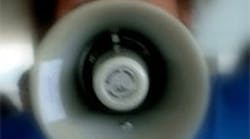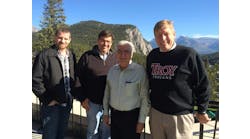Training Down Under
I'm a long-time reader of Control via RSS and Twitter. It is always a good source of news and information, even though I do disagree with Walt's thoughts about ISA100.
I am not a marketing person, just an interested techie, and I thought you might be interested to know that instrumentation and control courses are actually thriving in Australia thanks to assistance from vendors such as Yokogawa, Honeywell, Emerson, etc, etc. Most of us regularly give transmitters, control hardware and software to the Training and Further Education (TAFE) institutes to assist them in always training on the latest equipment. Sometimes the problem is the TAFE institutes keeping their courses up to date, which is a good problem to have.
Some of the TAFEs of interest are:
- Challenger TAFE. They are in Western Australia; this area is the Texas of Australia. They run Australian Center for Energy and Process Training (ACEPT) See www.web-tech.com.au/about/documents/tafe.pdf and www.eti.wa.edu.au/tafe-course-catalogue/aviation-engineering-and-building/advanced-diploma-of-process-plant-technology.html
- Wagga Wagga TAFE. Based inland from Sydney, its offers the following diplomas: electrical and instrumentation; electrical engineering; and industrial electronics and control engineering
- Yokogawa. Within Australia. Yokogawa is also a registered TAFE organisation. We conduct training courses for power generation operations, with the following certificate levels: Certificate 3, Certificate 4 and Diploma.
Brad Ford
Yokogawa Australia Pty Ltd
Lipták Has His Facts Wrong
Your entire collection of articles ("Software for Renewable Energy Processes”) are suspect. You wrote that the charge times for the Nissan Leaf are 3 to 4 hours for standard charging time and 10 to 20 minutes for "three-phase industrial outlets.” Where did you get this data?
I have studied the Leaf from the beginning and also followed the development of battery technologies. The Nisan Leaf's standard charge time is 8 hours at 120 VAC, 4 hours at 220 VAC, and never has there been a three-phase industrial quick charger. The notion that you can "quick charge" a Li-ion EV battery is false due to the internal temperatures generated in the battery, which would significantly reduce its life. As for "battery swap,” why would you need a battery swaps if an EV battery could be charged in 10 minutes?
I look forward to your articles every month, but this is the second time (that I have caught) in which you have stated grossly wrong data. If you can't get basic facts right then nothing you write has credibility. You footnote nothing.
And $0.2/kwh. Where in the heck do you live? This just goes to prove that any view can be supported by made up or skewed data.
And, you implied that residential electric rates are less at night, when you wrote that, "charging the batteries of electric cars when the electricity is inexpensive (at night).” Here in Indiana electric usage cost per KWH is the same around the clock. Even industrial customers pay the same KWH around the clock. Only the demand rate changes in the evening.
Jock Stucki
Maintenance Engineer, Wabash Plastics Inc.
Editor's Note: We welcome feedback to any material in Control or on ControlGlobal.com. We do not publish anonymous letters, although we will withhold a name on request. Send your comments to either [email protected] or [email protected]. Please include the name of the article or the date of the issue to which you are responding.




